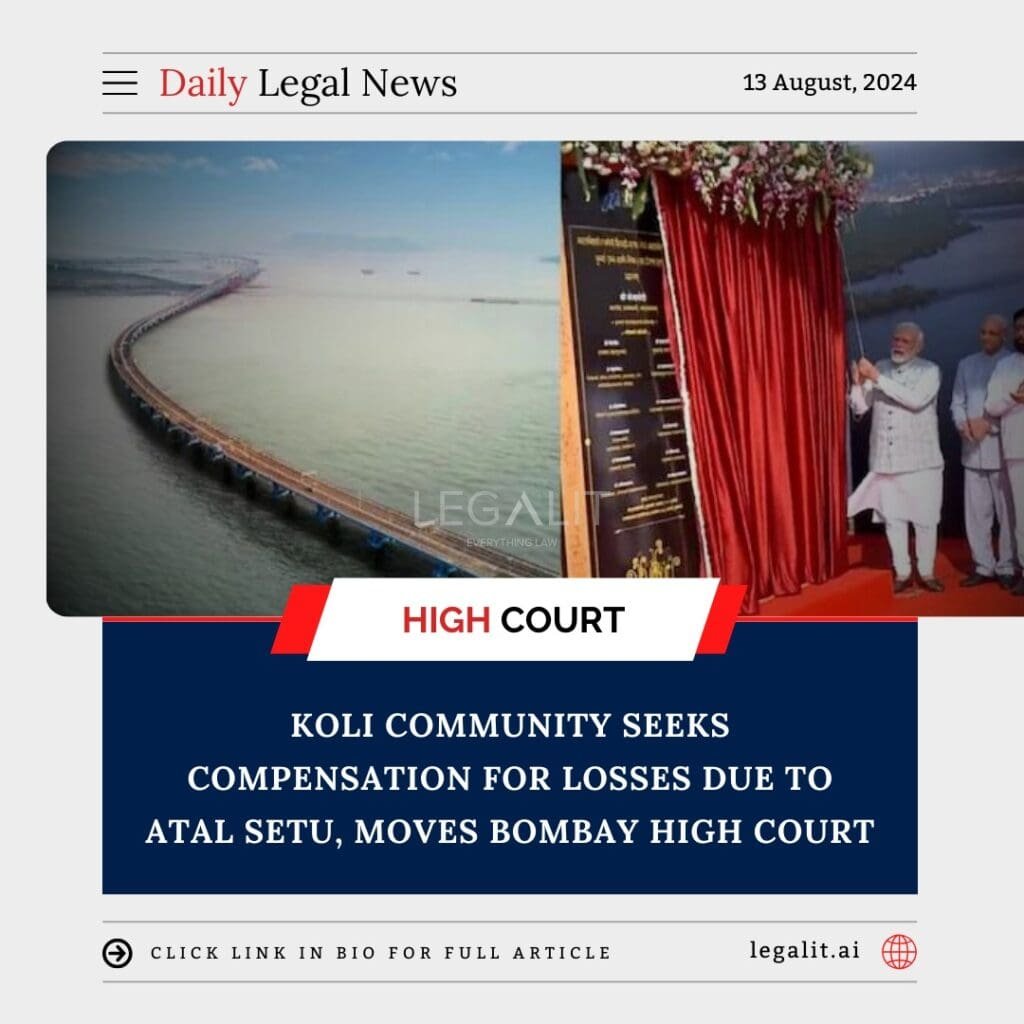
The Koli community, an indigenous fishing community, has moved the Bombay High Court seeking compensation for the losses they have suffered due to the construction and operation of the Atal Setu, a major bridge in the region. The plea highlights the significant impact of the infrastructure project on the community’s livelihood and underscores the need for equitable development that takes into account the rights and welfare of local populations.
Background of the Issue
The Atal Setu, also known as the Third Mandovi Bridge, is a vital infrastructure project that connects the towns of Panaji and Porvorim in Goa, enhancing transport and connectivity in the region. While the bridge has brought numerous benefits in terms of reduced travel time and improved accessibility, it has also had unintended negative consequences for the local Koli community, whose livelihood is heavily dependent on fishing in the Mandovi River.
The Koli community contends that the construction and subsequent operation of the Atal Setu have significantly disrupted their traditional fishing activities. The project has led to changes in the river’s ecology, affecting fish populations and making it difficult for the community to sustain their livelihood. Additionally, the community alleges that they were not adequately consulted or compensated for the disruptions caused by the construction of the bridge.
Key Points of the Plea
- Compensation for Losses: The Koli community is seeking compensation for the economic losses they have suffered as a result of the construction and operation of the Atal Setu. They argue that their traditional rights and livelihood have been adversely affected, and they are entitled to compensation under the law.
- Impact on Livelihood: The plea details the impact of the bridge on the fishing activities of the Koli community. It highlights how the changes in the river’s ecosystem, increased pollution, and restricted access to traditional fishing grounds have made it difficult for them to continue their primary occupation.
- Demand for Equitable Development: The community’s plea also emphasizes the need for more inclusive and equitable development practices. They argue that infrastructure projects should not come at the expense of local communities and that their rights and welfare should be taken into consideration during the planning and implementation phases.
- Legal and Environmental Considerations: The plea may also invoke environmental laws and regulations, pointing to the potential violations of these laws due to the ecological impact of the bridge on the Mandovi River and its surroundings.
Implications of the Case
The Koli community’s plea before the Bombay High Court has several significant implications:
- Rights of Indigenous Communities: The case brings attention to the rights of indigenous and traditional communities in the face of large infrastructure projects. It highlights the importance of protecting these communities’ livelihoods and ensuring they are not disproportionately affected by development initiatives.
- Legal Precedent: A ruling in favor of the Koli community could set an important legal precedent for how compensation and consultation processes are handled in future infrastructure projects, particularly those that impact traditional communities.
- Balancing Development and Equity: The case underscores the need to balance development goals with the rights and welfare of local populations. It may prompt a broader discussion on how to achieve sustainable development that benefits all stakeholders.
- Environmental Impact: The plea may also draw attention to the environmental impact of large infrastructure projects and the need for more rigorous environmental assessments and mitigation measures to protect local ecosystems.
Moving Forward
As the case proceeds, several steps will be important to ensure a fair resolution:
- Thorough Investigation: The Court may order a thorough investigation into the claims made by the Koli community, including an assessment of the economic and environmental impact of the Atal Setu on their livelihood.
- Consultation and Mediation: The case could lead to renewed consultation between the Koli community, the government, and project developers to explore potential solutions, including compensation or alternative livelihood support.
- Consideration of Environmental Laws: The case may involve a review of compliance with environmental laws and regulations, ensuring that any violations are addressed and mitigated.
- Precedent for Future Projects: The outcome of this case could influence how future infrastructure projects are planned and executed, with a greater emphasis on community consultation and environmental sustainability.
Conclusion
The Koli community’s move to seek compensation for the losses incurred due to the construction and operation of the Atal Setu brings to light the challenges faced by indigenous communities in the face of large infrastructure projects. The Bombay High Court’s handling of this case will be closely watched, as it has the potential to set important legal precedents for the protection of traditional livelihoods and the equitable distribution of the benefits and burdens of development. As the case unfolds, it will be essential to balance the need for infrastructure with the rights and welfare of the affected communities, ensuring that development is both inclusive and sustainable.